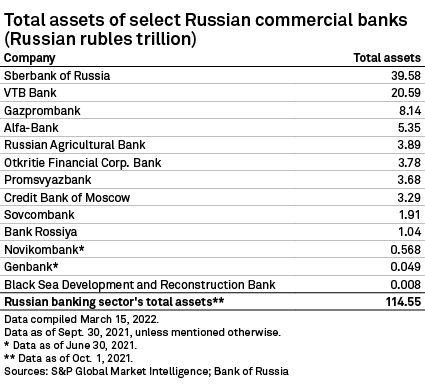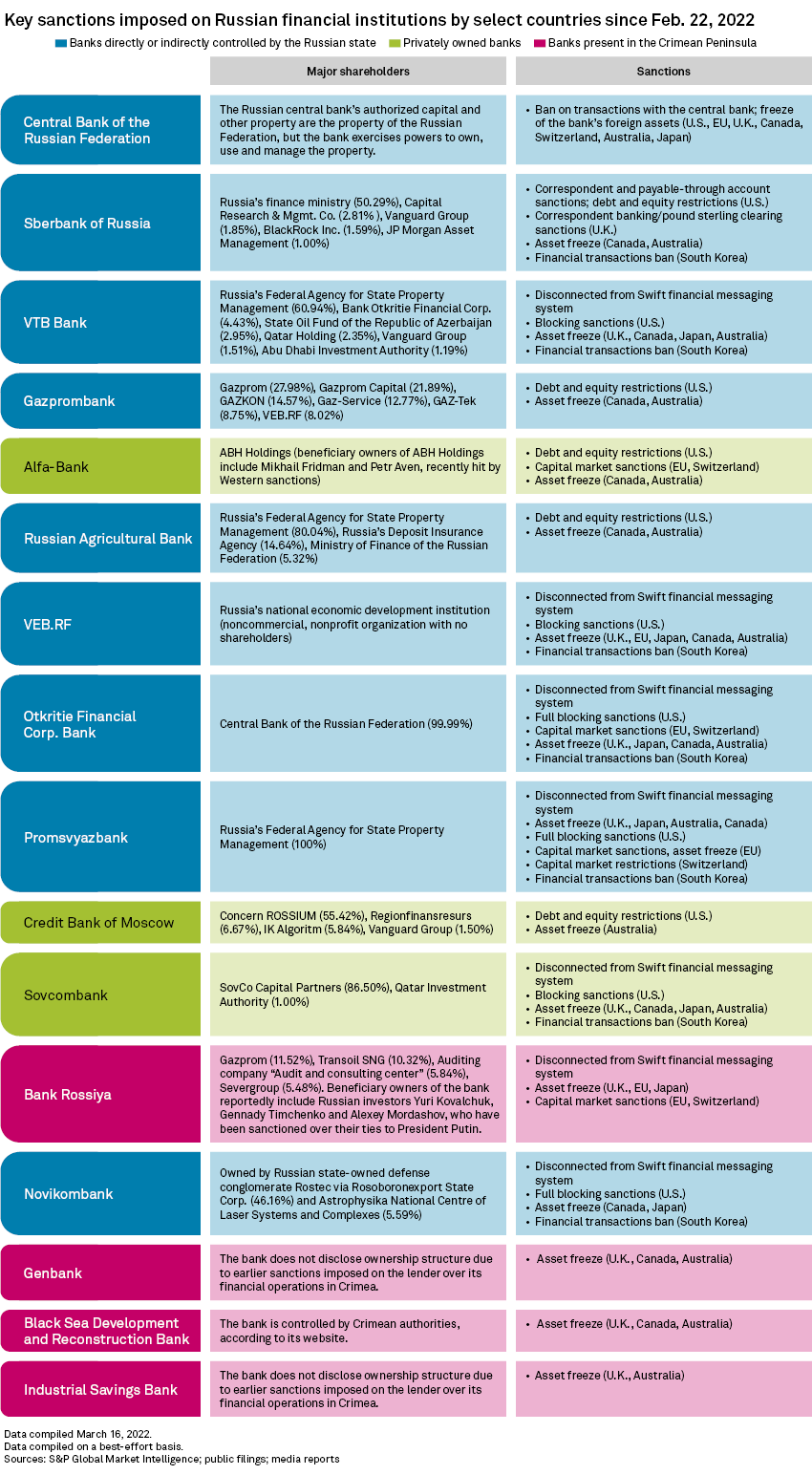The vast majority of Russia's commercial banking sector is subject to international sanctions as a result of the country's invasion of Ukraine, S&P Global Market Intelligence data shows.
Foreign governments have levied a host of restrictions against Russian banks, including capital markets bans, asset freezes and disconnection from the Swift messaging system that facilitates financial transactions globally.
A growing list
The value of assets held by Russian commercial banks affected by the latest sanctions exceeds 91 trillion rubles, equivalent to just over 80% of the 114.55 trillion rubles of total assets in the country's banking sector as of Sept. 30, 2021. Most of the affected lenders are Russia's systemically important financial institutions.

Seven banks, namely PJSC Bank Otkritie Financial Corp., Joint-Stock Commercial Bank NOVIKOMBANK, PJSC Promsvyazbank, Bank Rossiya, PJSC Sovcombank, State Development Corp. VEB.RF and VTB Bank PJSC, were disconnected from Swift.
Sberbank of Russia and Gazprombank JSC, two of the country's biggest lenders, were spared from the Swift cut-off so that energy payments to Russia could continue. However, the U.S. imposed correspondent and payable-through account sanctions on Sberbank and its subsidiaries, severing its connections with the U.S. financial system and restricting its access to dollar transactions. The U.K. also imposed similar measures.
The EU and the U.K. froze the assets of most of the banks disconnected from Swift, while the U.S. imposed full blocking sanctions on those banks, cutting them off from the U.S. financial system, freezing their assets and prohibiting U.S. individuals and entities from doing business with these institutions. Several bank executives and major shareholders are also subject to individual sanctions.
Some of the banks had already been operating under sanctions put in place following Russia's annexation of Crimea in 2014.
The U.S., EU, U.K. and Canada also froze foreign assets of the Central Bank of the Russian Federation, reducing its ability to mitigate the impact of the sanctions and support the country's lenders with their own foreign exchange needs. Russia lost access to almost half of its $640 billion reserves as the result of the sanctions, Reuters reported March 13, citing Russian Finance Minister Anton Siluanov.
Banks that are not subject to sanctions include the Russian subsidiaries of foreign lenders, such as France's Société Générale Société anonyme, Italy's UniCredit SpA, Austria's Raiffeisen Bank International AG and Hungary's OTP Bank Nyrt. However, many foreign banks have warned that they may lose their investments in Russia due to the war.

Currency woes
The geopolitical tensions and the international response to the conflict in Ukraine have resulted in the significant depreciation of the Russian ruble.
In an effort to prop up the currency and economy, the central bank raised the benchmark interest rate to 20% from 9.5% and told exporters to convert 80% of their revenue into rubles. The government has also imposed bans on foreign-currency lending and transfers to nonresidents, among other measures.

As of March 21, US$1 was equivalent to 107.75 Russian rubles.



